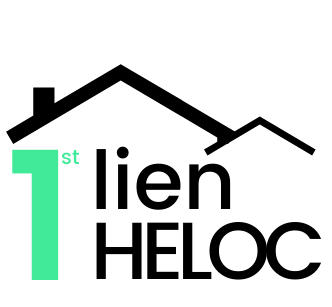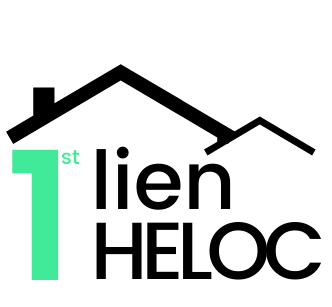I. Brief Overview of Closing Costs and Their Importance in Real Estate Transactions
Closing costs are the fees and expenses you pay when finalizing a real estate transaction, whether you’re buying a home or refinancing an existing mortgage. These costs typically include a variety of charges from both the lender and third-party providers. Understanding these costs is crucial as they can significantly impact your overall financial planning and the affordability of your new home or refinancing terms.
Explanation of When Closing Costs Are Typically Incurred
Closing costs are incurred at the closing of a real estate transaction. This is the final step in the home buying or refinancing process, where the property title is transferred from the seller to the buyer, or new loan terms are finalized with your lender. Buyers typically pay most of the closing costs, although sellers might cover some fees, depending on the negotiations and local customs.
II. Common Closing Costs Fees
Loan Origination Fee
- Definition and Purpose: The loan origination fee is charged by the lender for processing your mortgage application. This fee covers the lender’s administrative costs.
- Typical Percentage or Amount: Usually ranges from 0.5% to 1% of the loan amount.
Appraisal Fee
- Purpose of the Appraisal: An appraisal determines the market value of the property. Lenders require appraisals to ensure the property’s value supports the loan amount.
- Average Cost Range: Typically between $300 and $500.
Credit Report Fee
- Importance of the Credit Report: Lenders pull your credit report to assess your creditworthiness. This report influences the interest rate and terms of your loan.
- Typical Cost: Usually around $25 to $50.
Title Insurance
- Difference Between Lender’s and Owner’s Title Insurance: Lender’s title insurance protects the lender against title defects, while owner’s title insurance protects the buyer’s ownership rights.
- Average Cost Range: Typically between $500 and $1,000, depending on the property value and location.
Escrow Fees
- Role of the Escrow Company: The escrow company handles the closing process, holding and distributing funds, and ensuring all conditions of the sale are met.
- How These Fees Are Calculated: Generally, 1% to 2% of the purchase price.
Recording Fees
- Purpose of Recording Fees: These fees are paid to the local government to officially record the sale and transfer of property ownership.
- Typical Costs: Typically around $50 to $150.
Attorney Fees
- When Attorney Fees Are Required: Some states or lenders require an attorney to be present at closing to ensure legal compliance.
- Average Cost: Varies widely, typically $500 to $1,000.
Inspection Fees
- Types of Inspections: Common inspections include general home inspections, pest inspections, and specialized inspections (e.g., for radon or mold).
- Typical Costs: Home inspections usually range from $300 to $500; pest inspections from $50 to $100.
Prepaid Interest
- Explanation of Prepaid Interest: This is the interest that accrues on your mortgage from the closing date until the first monthly payment.
- How It Is Calculated: Calculated based on the loan amount, interest rate, and the number of days between closing and the first payment.
Property Taxes
- Explanation of Prorated Property Taxes: These are the property taxes that you owe from the closing date to the end of the tax year.
- Typical Costs: Varies depending on the property location and local tax rates.
Homeowners Insurance
- Importance of Homeowners Insurance in Closing: Lenders require proof of homeowners insurance to protect their investment.
- Typical Cost Range: Typically between $300 and $1,000 annually, depending on the property and coverage.
III. Additional Fees to Consider
Mortgage Insurance Premium
- When It Is Required: Required if your down payment is less than 20% of the home’s purchase price.
- Typical Cost: 0.5% to 1% of the loan amount annually.
HOA Fees
- Explanation of Homeowners Association Fees: If the property is part of a homeowners association, you may need to pay monthly or annual dues.
- Average Cost Range: Typically between $200 and $400 monthly, depending on the community.
Courier Fees
- Purpose of Courier Fees: These fees cover the cost of transporting documents between the parties involved in the transaction.
- Typical Costs: Around $20 to $30.
IV. How to Estimate and Prepare for Closing Costs
Tools and Resources for Estimating Closing Costs
- Online Calculators: Many real estate websites and lenders offer closing cost calculators that provide estimates based on your loan amount, location, and other factors.
- Loan Estimate Document: Lenders are required to provide a Loan Estimate document within three days of receiving your application, which details the expected closing costs.
Tips for Preparing Financially for Closing Costs
- Save Early: Start saving as soon as you begin considering buying a home or refinancing.
- Review Your Loan Estimate: Carefully review the Loan Estimate and ask your lender about any fees you don’t understand.
- Budget for Extras: Set aside additional funds for unexpected costs that may arise during the closing process.
- Negotiate: Sometimes, you can negotiate with the seller to cover some of the closing costs.
Understanding the various fees included in closing costs is vital for budgeting and financial planning in real estate transactions.
By being informed about these costs, you can better prepare financially and avoid surprises at closing, ensuring a smoother and more predictable home buying or refinancing experience.
Unlock the full potential of your home’s equity with a First Lien HELOC and start achieving your financial goals today!
Ready to Get Started?
- Visit Our Website: Learn more about how a First Lien HELOC works and explore the benefits tailored to your needs.
- Calculate Your Savings: Use our interactive calculator to see how much you can save by consolidating your high-interest debts into a low-interest HELOC.
- Speak to an Expert: Contact our experienced financial advisors for personalized advice and find out how you can use your home’s equity to invest, save, and grow your wealth.
Take Control of Your Finances Now!
- Quick Application Process: Apply online in minutes and get a quick decision.
- Flexible Terms: Enjoy the flexibility of interest-only payments and access funds as needed.
- Affordable Rates: Benefit from competitive interest rates and lower monthly payments.
Don’t Wait!
Transform your financial future today with a First Lien HELOC.

